Are you looking to gather valuable insights from your stakeholders? Crafting an effective letter to solicit feedback can set the tone for open communication and collaboration. By presenting your request in a clear and engaging manner, you not only encourage participation but also show that you value their opinions. Join us as we explore tips and templates to help you write the perfect stakeholder feedback letter!

Clear Objective Statement
Stakeholder feedback solicitation aims to gather insights from key participants regarding the new project initiative, Project Eagle, scheduled to launch in Q2 2024. Understanding perspectives from stakeholders, such as department heads and external partners, is crucial for aligning objectives and ensuring effective resource allocation. The feedback process will involve structured surveys and one-on-one interviews, focusing on strategic goals, potential challenges, and solution recommendations. Comprehensive evaluation of stakeholder input is intended to enhance project planning, drive engagement, and ensure a collaborative approach. Stakeholders are invited to contribute their thoughts by April 15, 2024, to facilitate timely integration of valuable advice into the final project strategy.
Targeted Audience Identification
Determining targeted audience identification requires thorough analysis of various stakeholder groups including customers, investors, suppliers, and community representatives. Customers provide essential insights based on preferences and usage patterns, influencing product development. Investors assess financial performance and growth potential, crucial for strategic planning. Suppliers supply valuable feedback regarding supply chain efficiency and product availability, impacting delivery schedules. Community representatives highlight local economic and social impacts, vital for corporate social responsibility initiatives. Proper engagement with these groups ensures comprehensive feedback, guiding effective decision-making processes and enhancing overall organizational performance.
Specific Feedback Questions
Gathering stakeholder feedback is a crucial step in the project development process. Specific feedback questions can provide targeted insights into various aspects of the project, enhancing overall effectiveness and alignment. Inquire about project clarity, effectiveness of communication strategies, stakeholder engagement levels, and satisfaction with deliverables. Ask stakeholders to evaluate the frequency of updates, responsiveness to inquiries, and areas needing improvement. Exploring these focused areas encourages constructive feedback, driving project success and fostering collaborative relationships. Key considerations include the timing of feedback solicitation, ensuring questions are precise to elicit detailed responses, and emphasizing the importance of input in shaping the project's direction.
Personalized Salutation
Feedback solicitation from stakeholders is crucial for improving organization strategies and enhancing relationships. Gathering insights from diverse individuals, such as investors, community leaders, and customers, can provide valuable perspectives. Effective communication through personalized salutation acknowledges the unique contributions of each stakeholder, fostering a sense of engagement and collaboration. Methods such as online surveys or one-on-one interviews can be utilized to obtain comprehensive feedback that addresses specific projects or initiatives. This process ultimately shapes future decisions and enhances stakeholder satisfaction, driving organizational success.
Concise Call-to-Action
Stakeholder feedback plays a crucial role in shaping project outcomes. Gathering insights from involved parties, including community members, business partners, and experts, can enhance decision-making. Engaging stakeholders in the feedback process ensures diverse perspectives are considered. To facilitate this, a concise call-to-action can be utilized, inviting stakeholders to share their thoughts, recommendations, and concerns regarding ongoing initiatives. This step not only demonstrates the commitment to collaboration but also fosters a sense of ownership and investment in the project's success.
Letter Template For Stakeholder Feedback Solicitation Samples
Letter template of stakeholder commentary solicitation for policy development
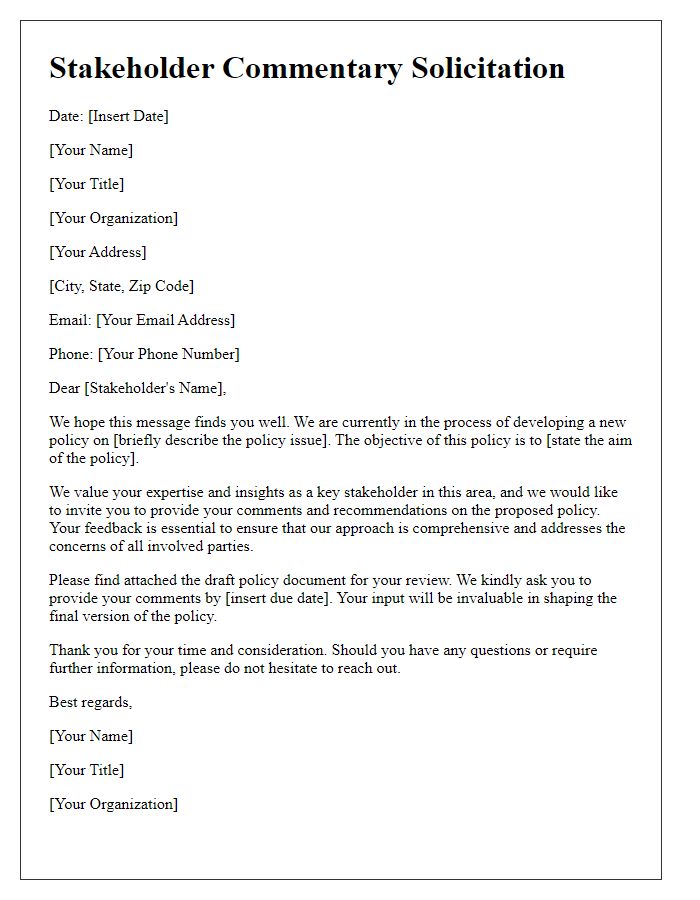
Letter template of stakeholder engagement request for service improvement
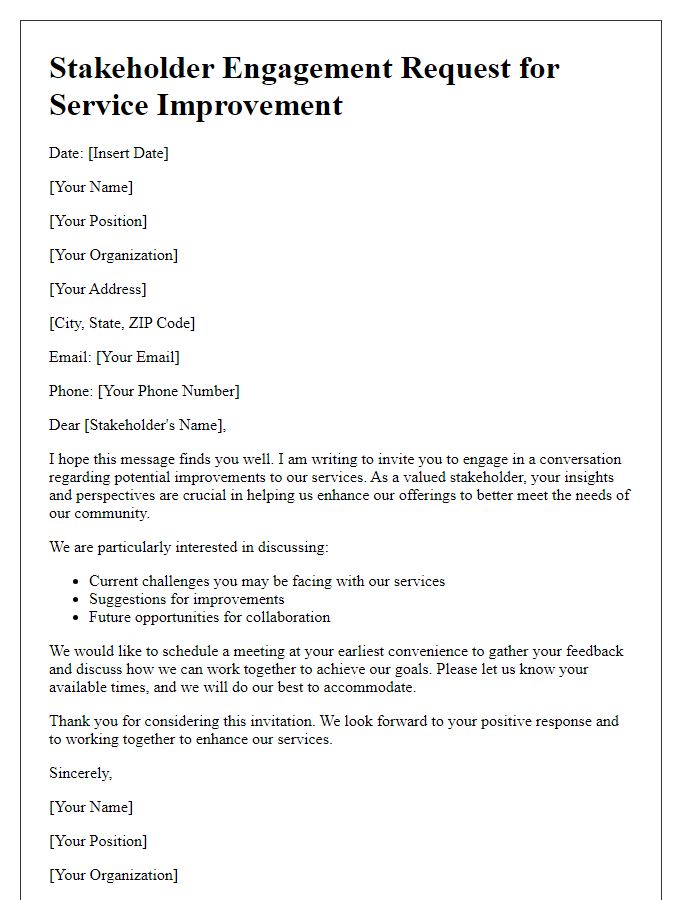
Letter template of stakeholder review invitation for performance assessment
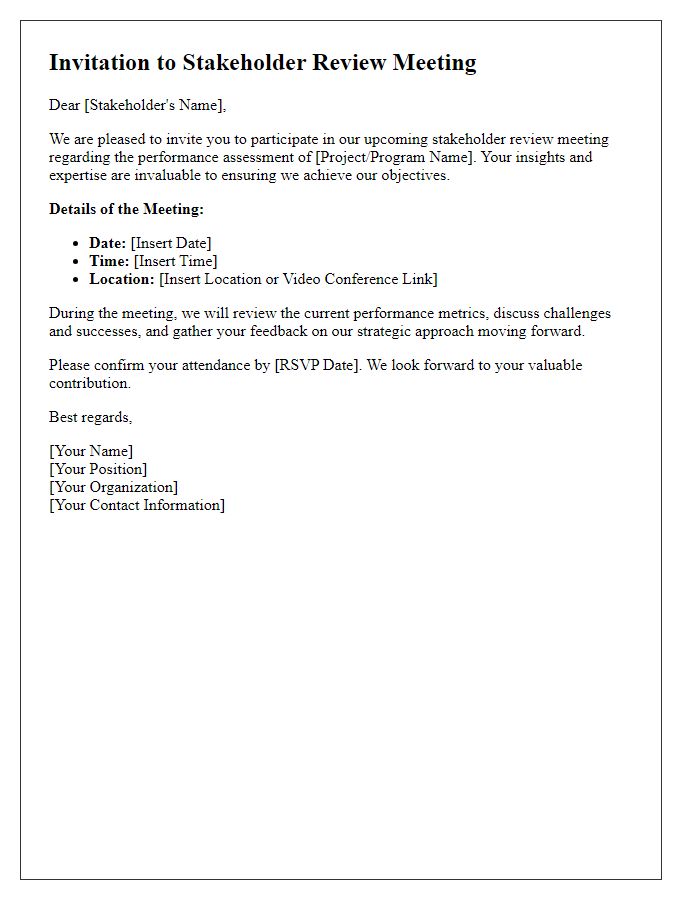
Letter template of stakeholder assessment solicitation for initiative feedback
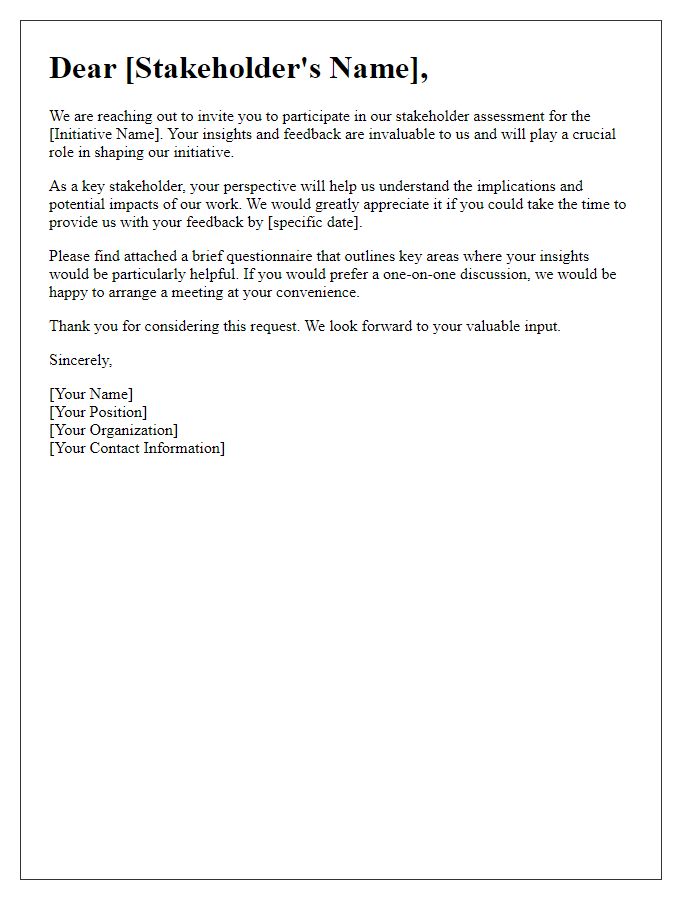
Letter template of stakeholder suggestions request for operational efficiency
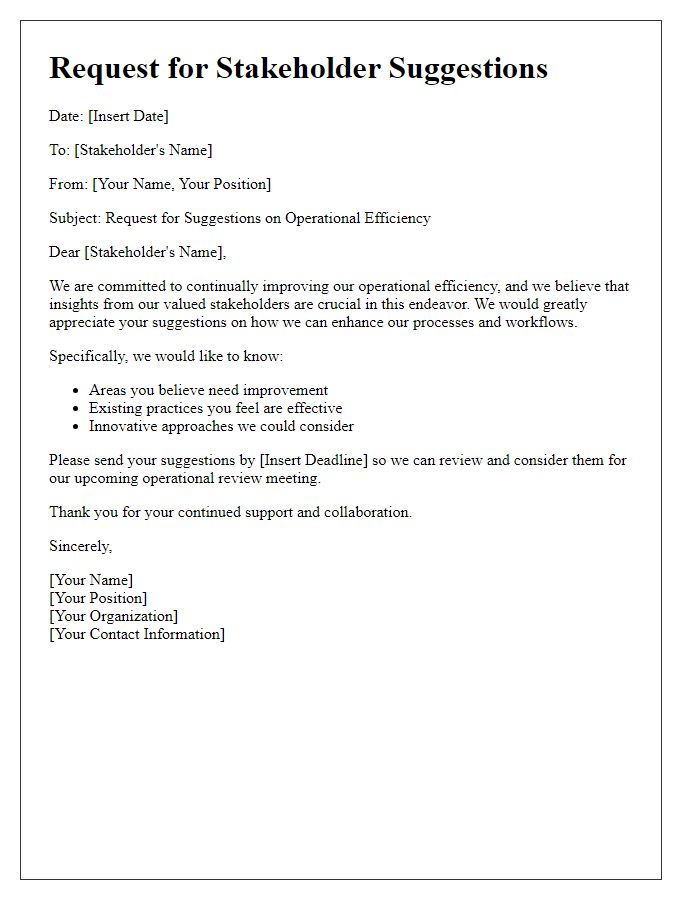
Letter template of stakeholder critique invitation for community outreach
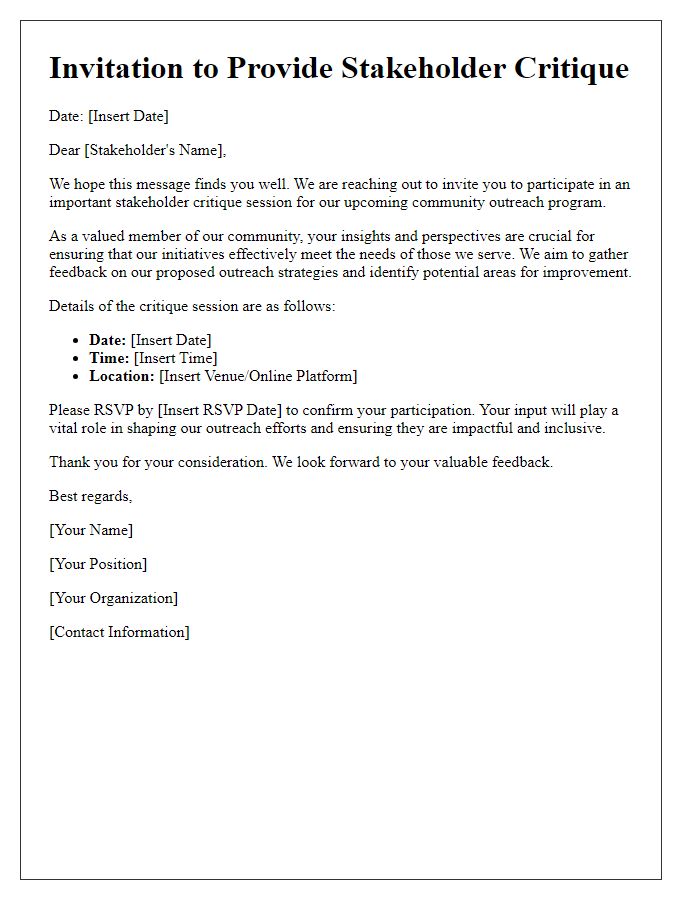

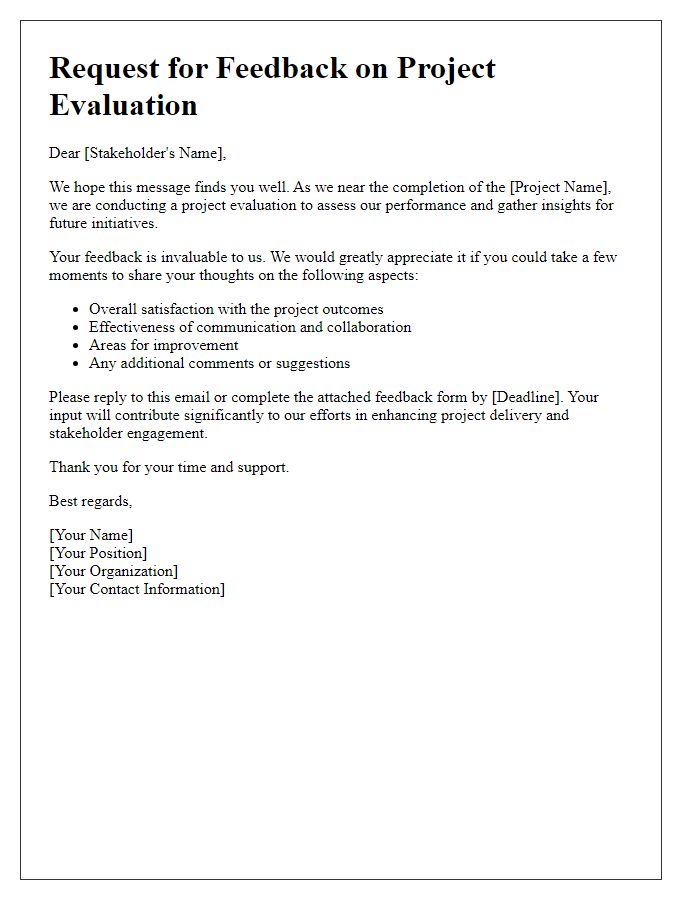
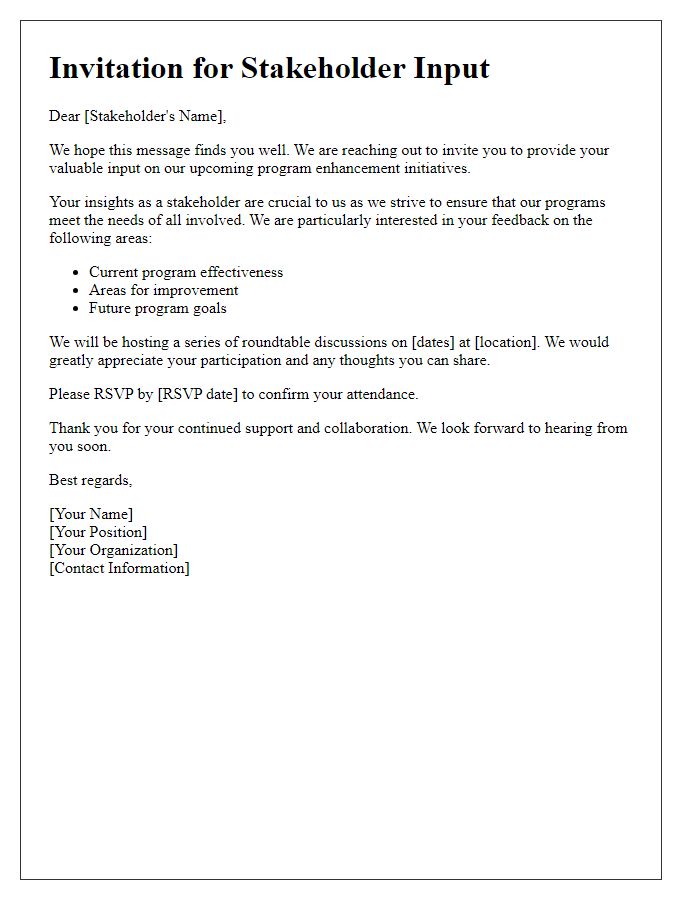
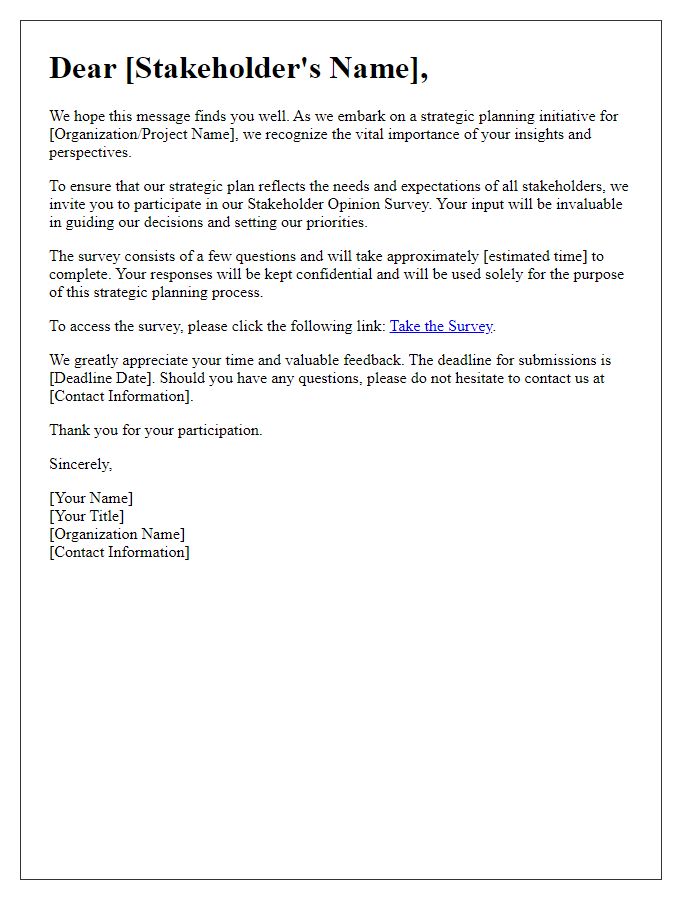
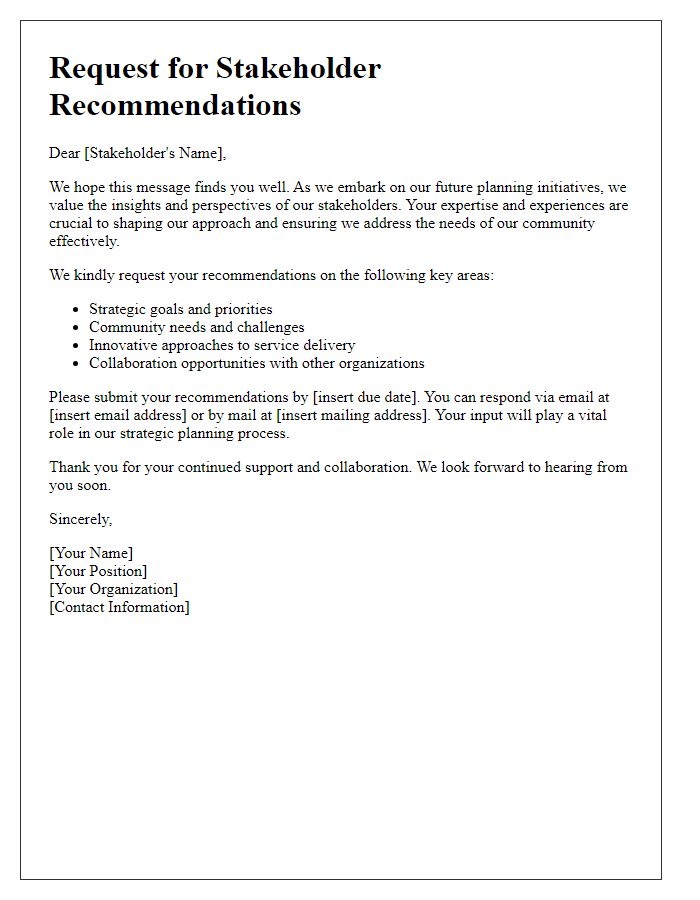


Comments